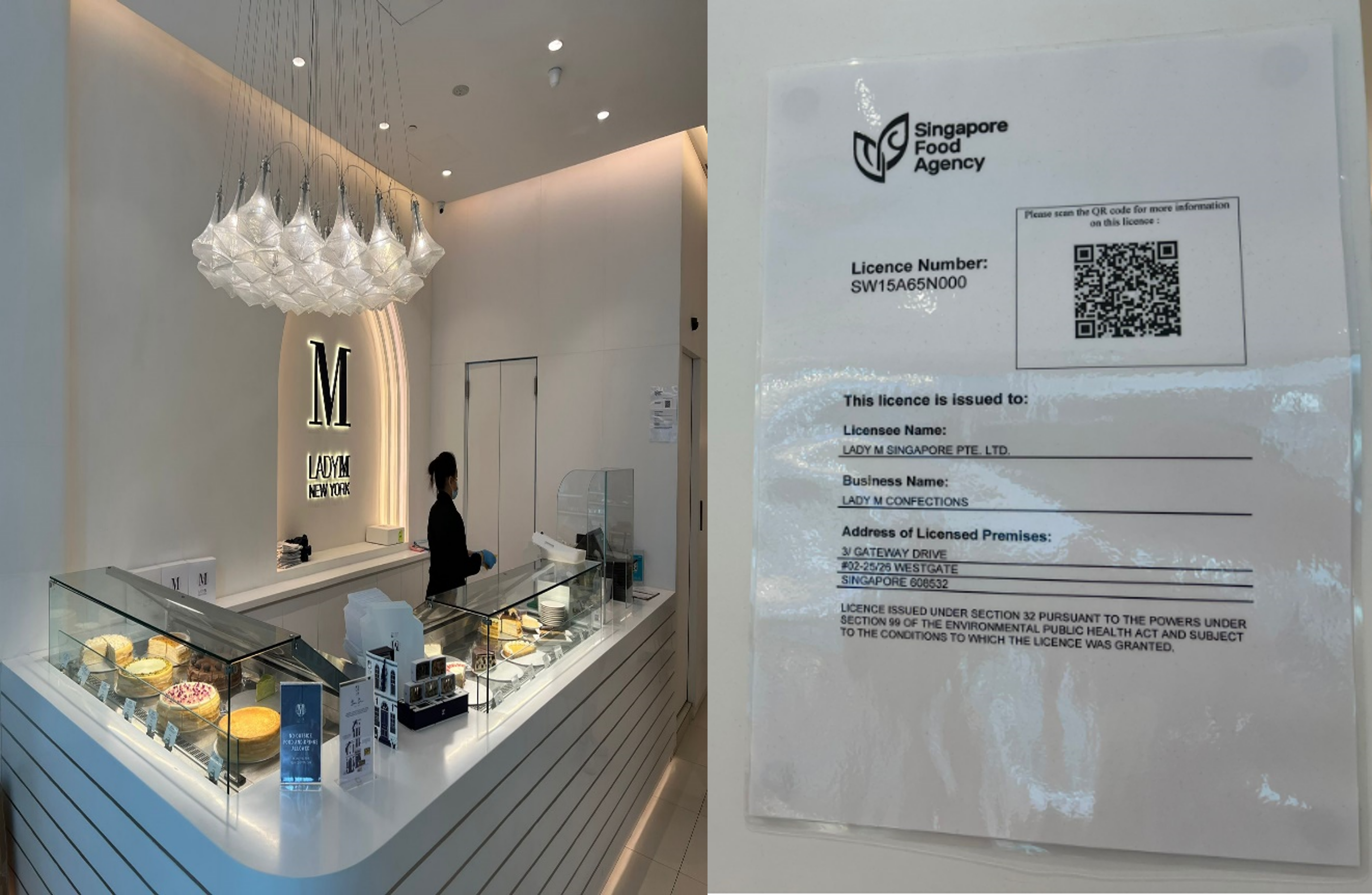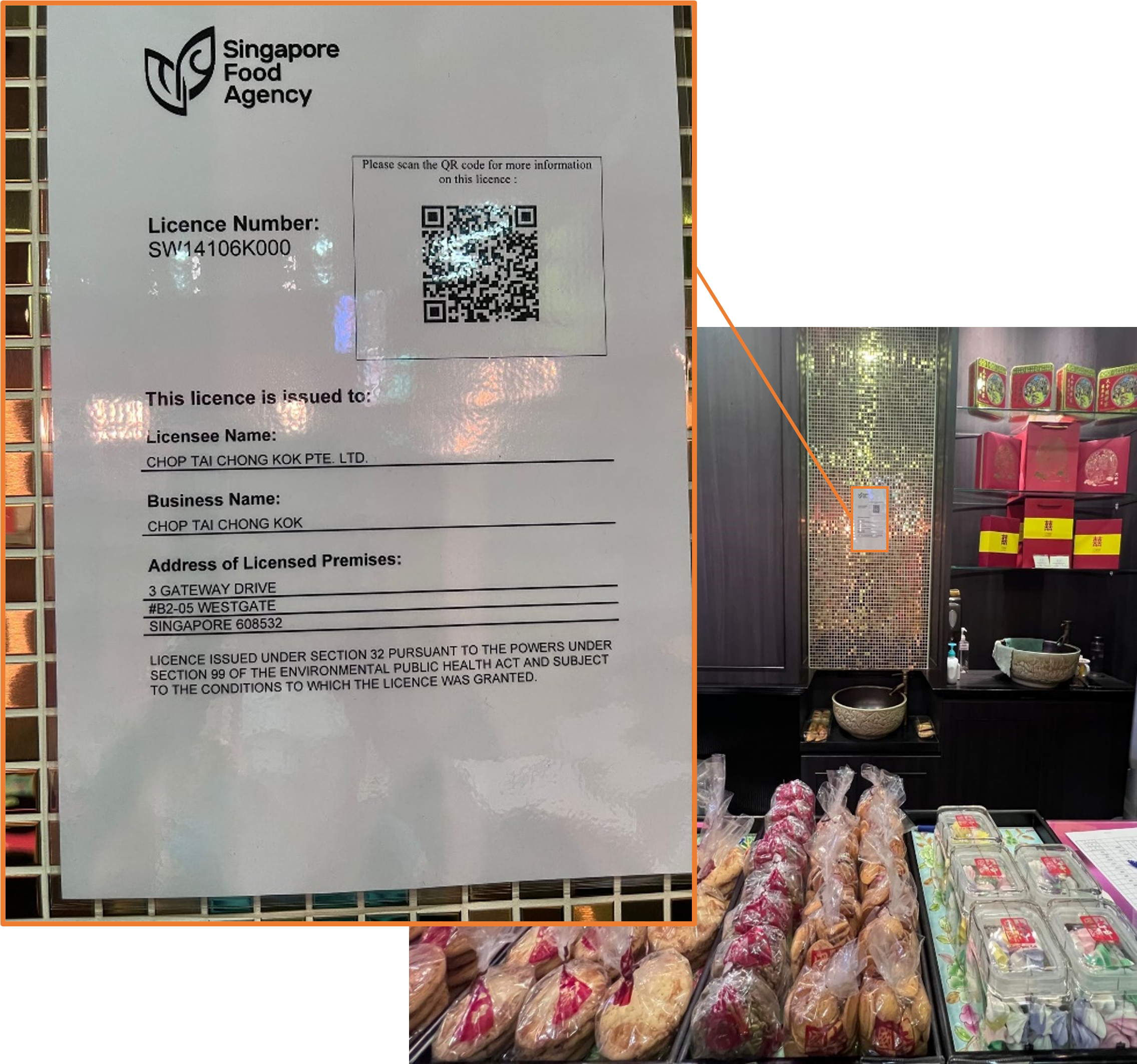
If you run a F&B business in Singapore, you will probably be aware that licences are required before food establishments can commence operations.
To obtain a food shop licence, SFA’s pre-licensing requirements must first be met. This ensures that the establishment is properly equipped to handle and prepare food safely, and well-versed in safe food preparation procedures. For example, food handlers of the prospective licensee must have attained Food Safety Course Level 1 or attended a refresher training within the last five years. Only establishments that meet all the licensing requirements are issued with a licence. Licensees are legally required to display their food licences prominently at the stall or F&B establishments.
In 2022, SFA started issuing licences to retail food establishments digitally, which licensees can then print and display on their own. This move is in line with SFA's continued efforts to streamline licensing processes and increase operational efficiency for businesses. Digitalisation promises greater convenience for food businesses, such as how SFA moved pre-licensing inspections for selected food establishments online in January 2022. The new digital licence also features a larger QR code for ease of scanning and keeps hard-coded information to just essential information. Data that will be periodically refreshed (e.g. validity period, track record, etc) is accessible via the QR code. This allows the licence to be “evergreen” as there will no longer be a need to reprint them during licence renewal, saving licensees yet more time.
Getting a food licence is now more convenient
In the past, food vendors would have to wait for SFA to mail them a hardcopy of their licence after it had been approved. However, hardcopy licences risked getting lost in the mail, and sometimes took up to a week to reach licensees, delaying the commencement of operations.
But that is all in the past. Now, licences that are approved and paid for are issued almost immediately through digital means. Food vendors can print their approved licence at their own time and convenience. Instead of waiting for their licence to arrive in the mail, new licensees can receive their licences and start operations right away.
Making the process simpler, faster
How do you print your own digital food licence? This online guide provides comprehensive, step-by-step information that you can follow. Here’s a summary:
1. Visit https://www.gobusiness.gov.sg/licences/
2. Log in via the link with your Singpass.
3. Click on the “Licences” tab on your dashboard.
4. Select the relevant licence to print.
With just a few clicks, your new food licence is now ready to be printed. No printer at home or need assistance to print your food licence? Simply visit the nearest Citizen Connect Centre (CCC) for help.
Citizen Connect Centres or CCCs are set up as service centres for citizens who require assistance with online Government services. CCCs offer free access to Internet-enabled computing devices, with trained staff present to guide users in performing online activities. Vendors who require help in printing their food licenses can head down to their nearest CCC for assistance. The list of CCCs is available in the online guide. |
“We do not need to wait for the licence to be posted”
Self-printing of digital licences has brought greater convenience for busy F&B business owners.
“It is a good initiative as we do not need to wait for the licence to be posted to us,” a staff from Chop Tai Chong Kok Pte Ltd shared. “It also saves us the hassle of printing the licence annually on renewal.”

Food safety is a joint responsibility
While SFA continues to explore ways to streamline business processes for the food industry, food safety remains most important and is a joint responsibility. The food industry has a crucial role to play in this. Food establishments must maintain good food safety standards and be responsible for the safety of the food they offer to consumers by adopting good hygiene practices and complying with food safety regulations.



